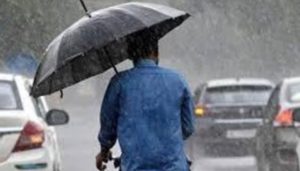Workshop on Water Resources Management charts a new direction for water literacy amongst citizens
The natural resources scenario of the country is changing fast both in terms of availability as well as quality. Looming climate change will alter the paradigm of management of natural resources. Water is critical natural resources and is being affected by increasing population, industrialization, urbanization, pollution, deforestation and above all climate change. We have to fight Water Scarcity by striking a balance between Water Usage and Water Replenishment through sensitizing all the stakeholders. In the long run, to tackle the water stress condition, the consensus and synergized approach of government departments, NGOs, Civil Society and Media will be required to get the desired impact. There are many NGOs who are actively working in the Water Resources Field, particularly, at the grass root level. Water education, Water Conservation, Watershed Development, reviving traditional practices etc are some of the areas on interest for NGOs Similarly, media too have influence on the thinking and opinion of the society about the water sector.
Media plays an important role in building the public opinion and also brings in public awareness. It is essential that the personnel from NGO and Media working in this area have proper domain knowledge and they understand the complexities, issues and challenges of the sector. The sensitization of personnel associated with media, newspaper and NGOs is required about various government measures launched over the years, current water management practices and strategy for facing the challenges of the sector etc. Periodic training of this group is the need of the hour to inculcate right thinking and proper perspectives for the sector. Recognizing the importance of capacity building of NGOs and media personnel’s, the National Water Academy (NWA) conducted two days training-cum-workshop on “Water Resources Management” for NGO and Media Personnel during 31 July -01 August 2017. The program had received tremendous response with a participation of 42 participants from the various NGOs and Media personnel across the India.
The training-cum-workshop was inaugurated by Dr S K Srivastava, Chief Engineer & Head, NWA, Pune. In his inaugural address he stated that Water Conservation and Recharge being burning national issue needs to be addressed collectively by joining hands together for food security and sustainable development. He further emphasized that NGO and Media should play an important role for taking ahead the water conservation movement by acting as stakeholders, policy contributors and shouldering the responsibilities and revolutionizing the sustainable water management. All the core faculty members of NWA, Pune also participated in Inaugural Session. Shri Aditya Sharma, who is soon taking over as Chief Engineer, NWAwas also present on the occasion.
The program covered topics on; India’s Water Budget – Availability & Requirement including National Water Policy; Need for Water Conservation and its measures; Water Induced Disasters and its Management and Impact of Climate Change on Water Resources; Integrated Water Resources Management; Water for Agriculture; Watershed Development and Management; resolving Socio-Environmental issues of River Valley Projects; Water Conflicts and its resolution mechanism at National / International level; Ground Water Management. The resources person for this Workshop was drawn from the core faculty of NWA, Central Ground Water Board, Retired Senior Government Officers.
Apart from the core faculty of NWA, Shri Chetan Pandit, former Member, CWC, Dr. D M More, former Secretary, Govt of Maharashtra and Shri. Sandeep Jadhav, Director, WoTR Pune were the prominent speakers on the occasion.
The program was conducted in an interactive mode. The program was highly appreciated by one and all. At the end of program, an Open House Discussion was conducted wherein core faculty of NWA interacted with the participants. During the interaction session participants also shared their experiences about various activities being undertaken by them on Water Conservation.





